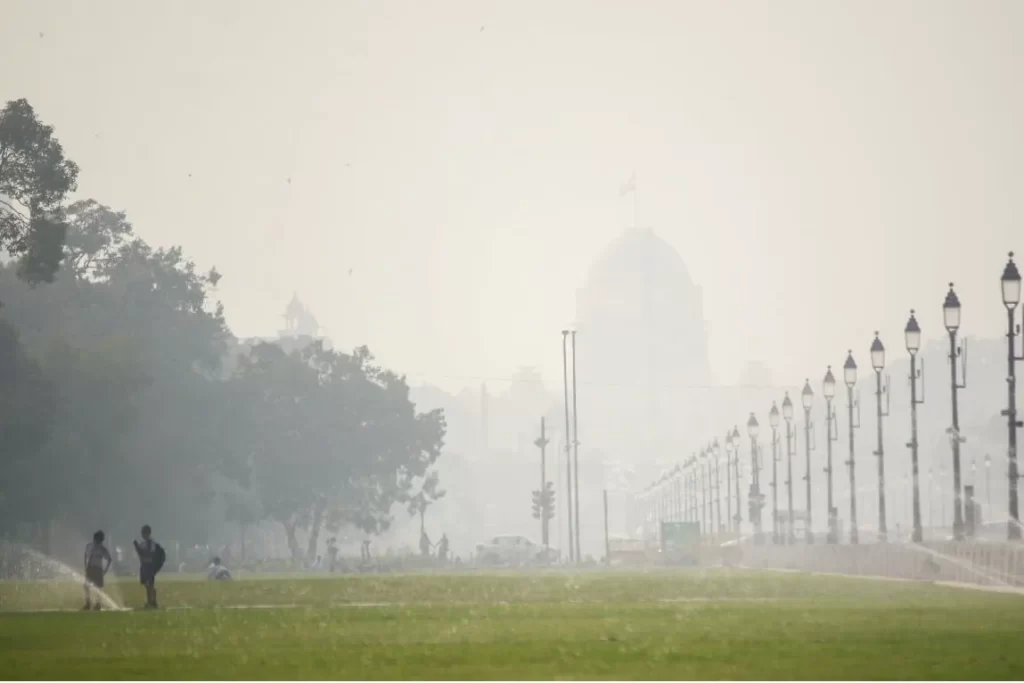What Caused Air Pollution in New Delhi?
Understanding the Severe Air Pollution in Delhi:
New Delhi, the capital of India, is notorious for its severe air pollution levels, especially during the winter months. The city’s air quality often dips into hazardous categories, prompting public health warnings and international concern. Understanding the root causes of this pollution is crucial for effective mitigation strategies. In this blog, we will explore the primary contributors to air pollution in New Delhi and their implications.
Causes of Air Pollution in Delhi:
1. Vehicular Emissions
One of the leading causes of air pollution in New Delhi is vehicular emissions. The city has seen a significant increase in the number of vehicles on the road, with estimates suggesting over 10 million registered vehicles. Many of these are older models that do not meet modern emission standards, releasing harmful pollutants like nitrogen oxides (NOx) and particulate matter (PM) into the atmosphere.
2. Construction and Dust
Rapid urbanization has led to extensive construction activity across New Delhi. Construction sites generate large amounts of dust, which contributes to airborne particulate matter. The lack of stringent dust control measures and improper site management exacerbates the situation, especially during dry seasons.
3. Industrial Emissions
Industries located in and around New Delhi release various pollutants, including sulfur dioxide (SO2) and volatile organic compounds (VOCs). While efforts have been made to regulate industrial emissions, enforcement can be lax, and many industries operate without adequate pollution control measures.
4. Burning of Biomass and Waste
The practice of burning biomass, including crop residues, leaves, and other organic materials, is common in the surrounding agricultural regions. During the winter months, farmers often burn stubble to clear fields for new crops, leading to thick smoke that drifts into the city. This practice significantly worsens air quality and contributes to the formation of smog.
5. Seasonal Factors
New Delhi experiences a unique combination of seasonal factors that exacerbate air pollution. During winter, cooler temperatures and atmospheric conditions trap pollutants close to the ground, creating a thick layer of smog. This phenomenon, combined with lower wind speeds, prevents the dispersion of pollutants, leading to dangerously high levels of particulate matter.
6. Construction of Roads and Infrastructure
While infrastructure development is necessary for urban growth, poorly planned projects can worsen air quality. Road construction often leads to increased dust and emissions from machinery. Moreover, inadequate public transportation options compel more people to rely on personal vehicles, further exacerbating the problem.
7. Cultural Practices
Certain cultural practices also contribute to air pollution. The burning of incense and other materials during festivals can release harmful particulate matter into the air. These practices, although rooted in tradition, add to the existing pollution levels, particularly during peak festival seasons.
8. Weather Patterns and Geography
New Delhi’s geographical location and weather patterns also play a role in air pollution. The city is situated in a basin surrounded by the Himalayas, which can trap pollutants. Additionally, temperature inversions during the winter months prevent the upward dispersion of smog, leading to severe air quality issues.
Conclusion
Air pollution in New Delhi is a complex issue driven by a multitude of factors, including vehicular emissions, industrial activity, construction dust, and seasonal phenomena. Addressing these challenges requires coordinated efforts from the government, industries, and citizens alike. Strategies such as promoting public transportation, regulating industrial emissions, and implementing strict construction guidelines can significantly improve air quality.
How Can We Help You?
At Unistar Aquatech Private Limited, we are passionate about delivering innovative solutions for air pollution control, ensuring the protection of our planet’s most precious resource: clean air. Our range of products—including biofilters, scrubbers, and incinerators—plays a crucial role in managing air quality in Delhi and various other cities across India.
About Unistar Aquatech Private Limited:
Unistar Aquatech Private Limited, located in Ghaziabad, Uttar Pradesh, is a leading manufacturer of water and wastewater treatment plants. Renowned for our exceptional quality and client satisfaction, we specialize in Commercial RO Plant and Industrial RO Plant, Sewage Treatment Plant, Water Softener Plant, and Effluent Treatment Plant. Our standout feature is our 24/7 customer support, ensuring you always have assistance when needed. For inquiries or support, call us at +91-9811701883, +91-8588881234 or email india@unistaraquatech.com
Enquire Now
Recent Posts
- What is a Water Treatment Plant and Its Importance in Preventing Water Pollution
- The Four Stages of Wastewater Treatment Plant
- What is PPM or Parts Per Million and How to Calculate PPM?
- What is pH (Potential of Hydrogen) and What is the pH Value of Water?
- What are the Methods of Sewage Treatment?
- 15 Key Components Of A Reverse Osmosis Plant
- What is Water Cycle and its effect
- What are the Role of 4 R’s in Waste Management?
- What Is The Full Form Of pH?
- What is the full form of MBBR in Sewage Treatment Plant (STP)

